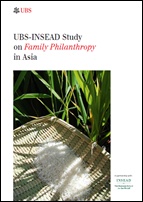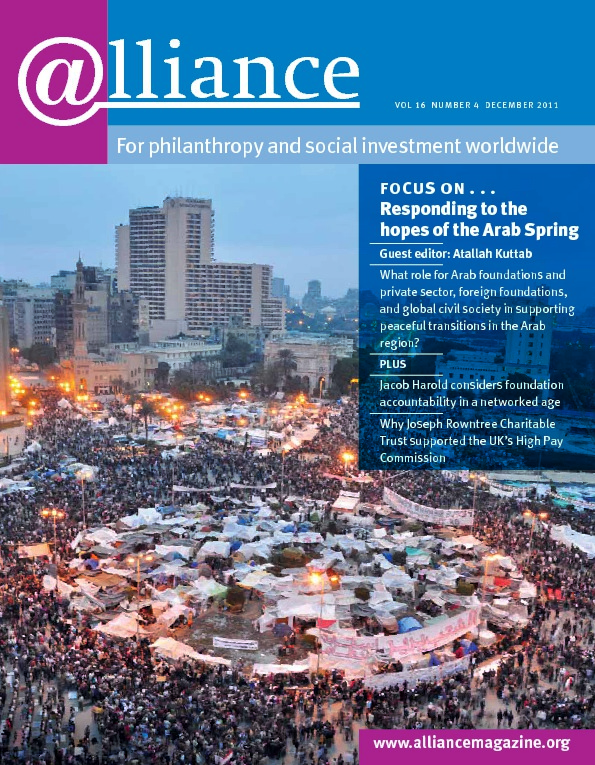If family philanthropy in Asia is to make a significant impact on the region’s social problems it ‘will need to become more strategic in its focus, more collaborative in its orientation and more professional in its conduct’, concludes a recent joint study by UBS Bank and INSEAD Business School.
 As Priya Viswanath of Dana Asia remarks in the report, called simply UBS-INSEAD Study on Family Philanthropy in Asia, the region ‘has produced three million HNWIs with wealth of US$ 9.7 trillion and … is home to the fastest growing HNWI population’.
As Priya Viswanath of Dana Asia remarks in the report, called simply UBS-INSEAD Study on Family Philanthropy in Asia, the region ‘has produced three million HNWIs with wealth of US$ 9.7 trillion and … is home to the fastest growing HNWI population’.
To date, however, their philanthropy tends to be parochial and piecemeal, its principal driving force ‘ensuring the continuity of family values or creating a lasting legacy’. Forty-two per cent of the respondents to the study cited this as their motive for engaging in philanthropy.
Based on surveys of over 200 individuals, groups of individuals, philanthropic foundations and trusts and family businesses and 100 or so interviews with those interested in or expert on the sector, the report found that well over three-quarters of family giving in Asia is either local or national in its object. Projected figures for this year suggest only 12 per cent of family giving will go to Asian regional causes or organizations and only 4 per cent to international causes outside Asia.
Singapore is a noticeable exception to most of these rules. Philanthropic organizations based in Singapore made the highest proportion of international donations (33 per cent) last year and the island also has the highest percentage of family foundations managed by professionals (74 per cent).
Among the needs identified for a strong sector were more professional management of philanthropic organizations; more effective, scalable and transparent implementation partners; greater collaboration and pooling of resources; more training institutions and sharing of best practices; and more supportive government regulations and policies.
As INSEAD’s Dipak Jain notes in his introduction, organized philanthropy in Asia is a relatively new field: ‘More than 75 per cent [of respondents] were established as formal philanthropies since 1980 … The opportunities and challenges of structured, sustained family giving in Asia are still largely ahead of us.’
To download the report
http://www.ubs.com/1/e/wealthmanagement/philanthropy_valuesbased_investments.html





Comments (0)